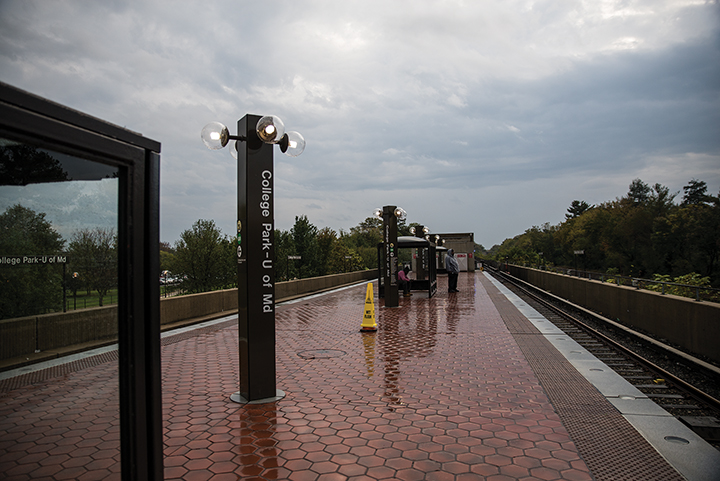Metro plans to supply free customer Wi-Fi at 30 stations by the end of 2017, the transit agency said Monday.
Free Wi-Fi is already offered at six underground stations as part of a pilot program that began in August — Union Station, Metro Center, Gallery Place, L’Enfant Plaza, Judiciary Square and Archives — and it’s used by hundreds daily, Metro told The Washington Post. Monday’s plan expands the free Wi-Fi coverage to 24 underground stations, including the Smithsonian and Farragut West stations, The Post reported.
WMATA media relations manager Sherri Ly wrote in an email there are currently no plans to expand the free Wi-Fi to above-ground stations, such as the College Park Metro Station.
[Read more: UMD on-campus residents could start paying a mandatory fee for unlimited Metro access]
In December, Metro General Manager and CEO Paul Wiedefeld green-lighted a program to make free Wi-Fi available for customers in all underground Metro stations, Ly wrote.
Emma Nold, a freshman international business major, thinks the free Wi-Fi should “definitely expand” to the College Park Metro Station, adding it could make it easier to check arrival times on her phone.
“Sometimes your cellular data doesn’t work,”Nold said. “Some people are busy, and Wi-Fi helps everywhere. … I think that it would be very useful.”
Cellphone service is already offered in underground stations, but passengers have complained that it can be spotty and unreliable, The Post reported.
Mitchell Kenyon, a junior animal science major, said Wi-Fi could make it easier for passengers to use the Metro.
[Read more: University of Maryland’s Metro bus stop returns to Stamp Student Union]
“Even though I’m a native to the area, I don’t really ever remember when the hell I’m supposed to get off,” Kenyon said. “I think we should definitely have Wi-Fi, especially because there’s so many students that take [the Metro] that aren’t from around here.”
Metro plans for “nearly every Red Line station from Union Station to Medical Center” to have access to free Wi-Fi, with the exception of Woodley Park, The Post reported. The plan should also cover a broad section of the system’s core.
The internal Wi-Fi “build out” costs about $5 million and provides network access both to customers and personnel across the system, The Post reported.
Metro spokesman Dan Stessel said this expansion comes at little cost to Metro, because it’s making existing networks, which are used by workers on tablets and portable devices for maintenance purposes underground, available for customer use.
Metro has already taken its first steps by increasing its network capacity to support the added web traffic, and stations will be added “incrementally” beginning by late summer, Stessel told The Post.



